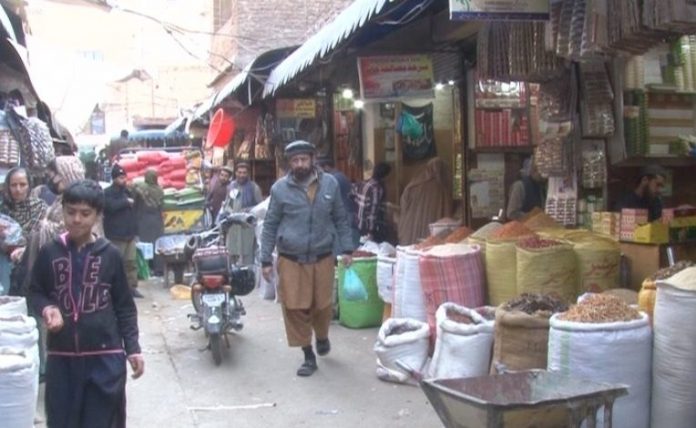
Aarif Hayat
The spice exports to Afghanistan from Peshawar’s Pipal Mandi have come to grinding halt due to the situation resulting from Taliban takeover of the country.
Traders of Pipal Mandi which is a century old market, complained that earlier border closure due to pandemic and now the uncertainty resulting to Taliban ascendency have badly damaged their businesses.
Habib-ur-Rehman, vice-president of Pipal Mandi said that a loss of Rs. 60 million In six months since the fall of Kabul. Besides, he said that due to the collapse of banking system, traders were facing problems in transferring money to and from Afghanistan. In addition to this, Afghan traders were facing problems in getting Pakistani visas.
Mr Rehman said that previously it was difficult for them to even have time for launch; however, these days, they spent most of their time in idle gossip.
“We used to export garam masala and other verities of spice used in meat cooking to Afghanistan in great quantities,” he said.
Besides, he said that even the Taliban rule in 1990s had not dampened the business activities at this scale.
“Both countries should formulate a business policy as soon as possible to enable them to export their existing stock of spice,” he said.
On the other hand, many traders in the market said that trade with Afghanistan were very beneficial for them. Besides, they said that more than a dozen local spice companies were engaged in trade with Afghanistan.
Surjit Singh, a trader told TNN that he used to earn up to Rs 500,000 a week from trade with Afghanistan; however, not anymore.
Besides, he said that Afghan spice cost Rs 50,000 a month before the fall of Kabul; however, now it cost up to Rs 150,000.
Afghanistan’s restaurants are also facing spice shortage
Darwish Khan, proprietor of a Jalalabad restaurant said that majority of his customers were complaining that food has lost its taste.
He said that previously they used to order spices from Peshawar which locals used to appreciate greatly. However, now due to frequent border closures and absence of clear policies, the spice import from Pakistan has greatly affected.
Besides, similar complaints are also originating from restaurants of Kabul. Reports said that closure of spice trade has changed the taste of Afghan food.
Rasool Shah, 50, said Afghan paulao, kabab and mutton enthusiasts were complaining about the change in taste due to spices.
In addition to this, rising inflation in Pakistan has also affected the spices business. According to the market rate, ready-made garam masala has become expensive by Rs. 200 per kg. Pepper has gone up by Rs 500, cumin by Rs 200 and turmeric by Rs 100 per kg. Ingredients used in spices have become more expensive by about 55 per cent. On the other hand, traders also said that the rise in the value of the dollar has pushed up the prices of imported goods.
Shahid Hussain, head of the Pak-Afghan Trade Committee, said that 70 per cent of Khyber Pakhtunkhwa’s businesses depended on the Afghan market.
“Business uncertainty in Afghanistan is having the biggest impact on traders in Khyber Pakhtunkhwa. If business policy is not issued soon, all kinds of business will come to a halt in a few months,” he said.







